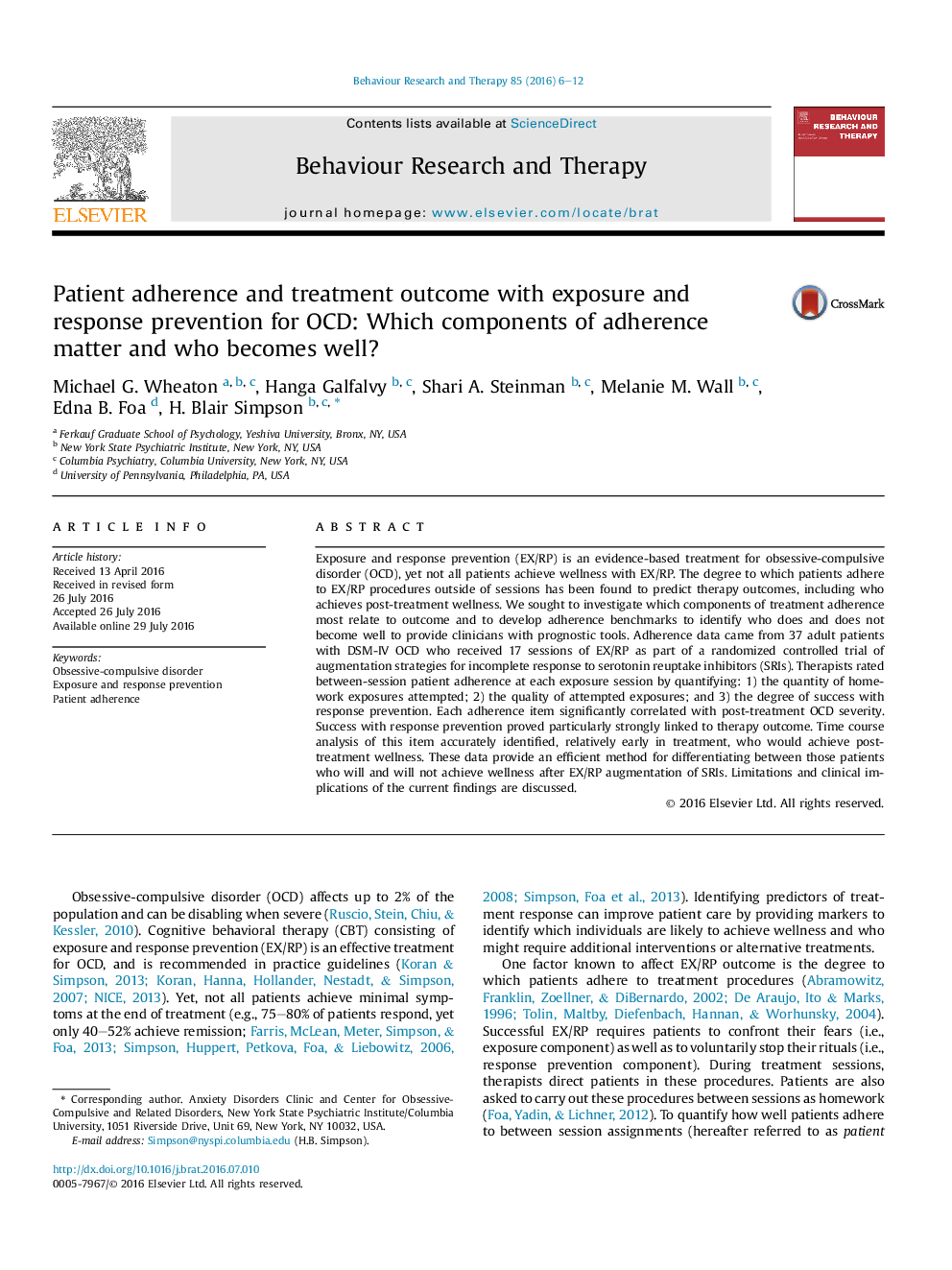| Article ID | Journal | Published Year | Pages | File Type |
|---|---|---|---|---|
| 901751 | Behaviour Research and Therapy | 2016 | 7 Pages |
•This study examined patient adherence to between-session EX/RP assignments.•Adherence predicted treatment outcome and attainment of post-treatment wellness.•Adherence to response prevention was a strong individual predictor.•Benchmarks based on response prevention predicted outcomes for individual patients.•These results could help clinicians make prognostic decisions.
Exposure and response prevention (EX/RP) is an evidence-based treatment for obsessive-compulsive disorder (OCD), yet not all patients achieve wellness with EX/RP. The degree to which patients adhere to EX/RP procedures outside of sessions has been found to predict therapy outcomes, including who achieves post-treatment wellness. We sought to investigate which components of treatment adherence most relate to outcome and to develop adherence benchmarks to identify who does and does not become well to provide clinicians with prognostic tools. Adherence data came from 37 adult patients with DSM-IV OCD who received 17 sessions of EX/RP as part of a randomized controlled trial of augmentation strategies for incomplete response to serotonin reuptake inhibitors (SRIs). Therapists rated between-session patient adherence at each exposure session by quantifying: 1) the quantity of homework exposures attempted; 2) the quality of attempted exposures; and 3) the degree of success with response prevention. Each adherence item significantly correlated with post-treatment OCD severity. Success with response prevention proved particularly strongly linked to therapy outcome. Time course analysis of this item accurately identified, relatively early in treatment, who would achieve post-treatment wellness. These data provide an efficient method for differentiating between those patients who will and will not achieve wellness after EX/RP augmentation of SRIs. Limitations and clinical implications of the current findings are discussed.
